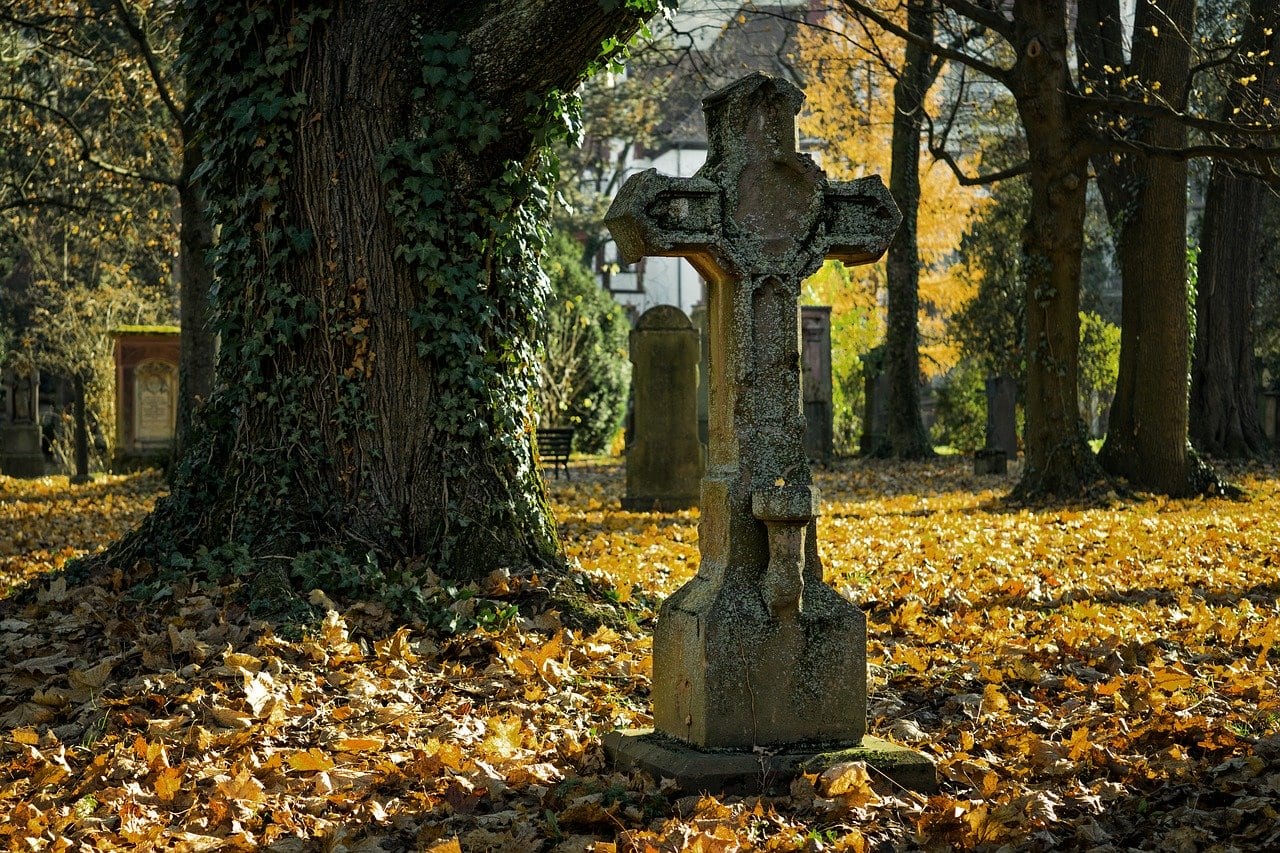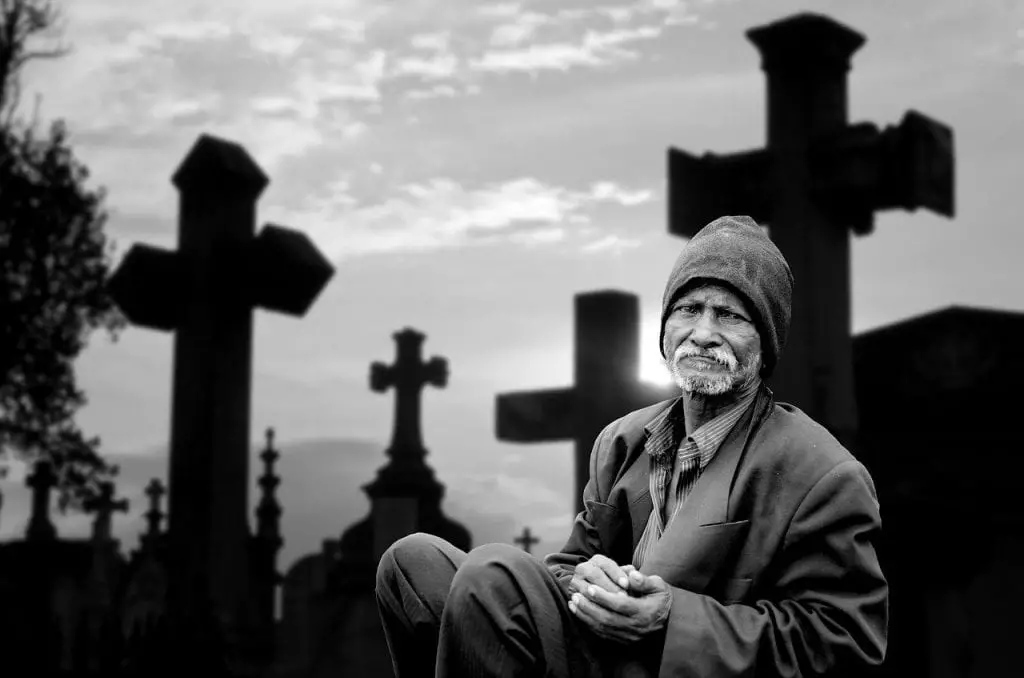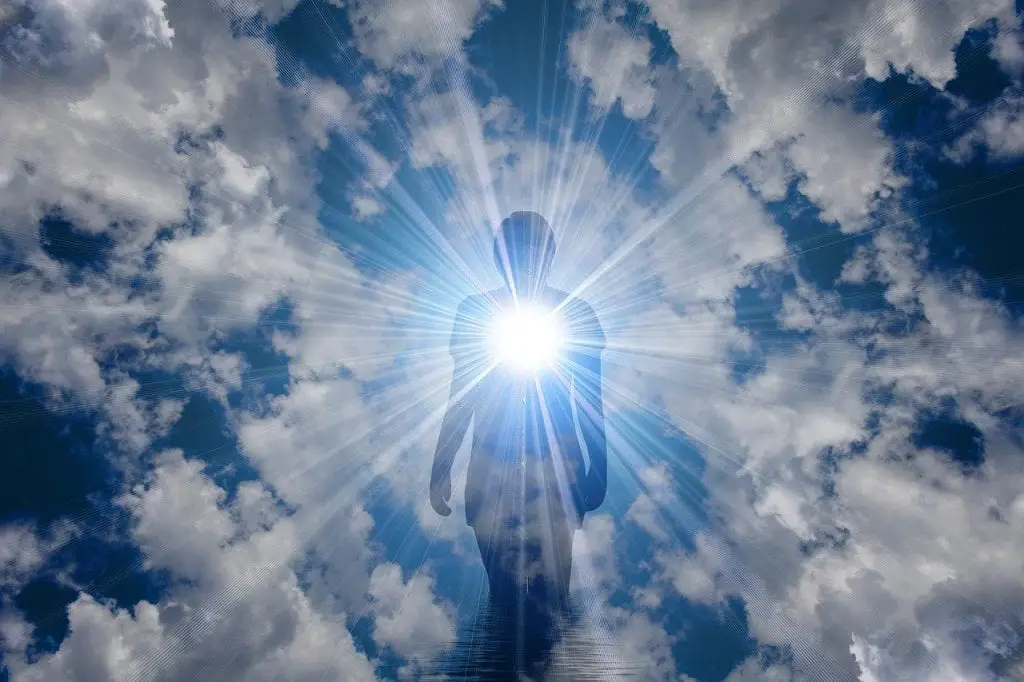
Every living being will eventually die. One of the biggest questions that has haunted humanity through the ages is ‘what happens when we die?’. Even though people have sought answers to this question for thousands of years, no fixed answer has ever been found.
Religion offers peace of mind when it comes to death, and almost every religion in the world has their own version on what happens to a person when they pass on. Christian beliefs about death suggest that after death, the soul of the person enters into an afterlife. If a person performed good deeds while they were alive, they could ascend to Heaven. If they performed evil deeds, they descended to Hell.
All major religions attempt to offer their theories on what happens after death. The common idea is that the soul lives on after the death of the physical body. But religious ideologies differ on how the soul exists after a person has passed on.
Early humans and the contemplation of death:
People have had questions about death since pre-historic times. Even though there is no written evidence to show historical researchers what their views on death were, early humans left behind other evidence. Archaeological excavations have found that Neanderthal burial sites included more than the body of the deceased. The Neanderthals lived around 100,000 BCE. They placed items such as food, shells and stone implements inside the graves of the deceased. This shows that they had some ideas about death. The items found in the graves were probably what they thought was important or necessary for their dearly departed.
The idea of the soul in religions across the world:
Throughout history, people have formed their own theories on what death means and if there is life beyond death. Major religions across the world offer diverging ideas on death. But most of these ideas are based on the relationship between the soul and the human body. Christian beliefs about death stress the importance of living good and righteous lives so that the fruits of those actions could be enjoyed in the afterlife. Buddhist theories believe in being careful to not get attached to material things so that the soul can leave the reincarnation cycle. In this way, all major religions set rules of behavior keeping with the idea that the life a person leads could have direct consequences on what happens to their soul after death.

The human experience is a summation of the soul – or a divine spark, and the physical body.
To understand how different religions view death, the idea of the soul must first be looked into. The reason behind this is that while we don’t know what happens to the soul after we die, the death of the body is an absolute certainty.
The death of the physical body does not, according to major religions, mean the death of the soul. This idea has offered relief and hope to millions of devout followers throughout history. The belief that life continues on after death helps people cope with the anxiety and fear of their own imminent passing.
The other loss people experience in their lives is the death of loved ones. Friends, family, lovers and pets – the loss of loved ones can affect people deeply. The idea that their soul is happy in paradise, or living a whole new life as a reincarnated being, can help people move on from painful times.
What is the soul?
There is no standard definition of the soul. The major religions of the world have their own views on what the soul is.

In Hinduism, the soul is called the ‘Atman’. According to Hindu doctrine, this ‘Atman’ contains the divine breath of life. After coming down to the earthly realm, the ‘atman’ has to face ‘avidya’ or ignorance and ‘maya’ or illusion. The combination of ignorance and illusion makes the Atman think that the physical reality is the actual reality. The soul should strive to be free from this false perception, and reunite with the divine essence, the Brahma. Hindus believe that the soul is immortal and will eventually remember its true purpose of merging with Brahma, or the divine source.
Buddhism offers a completely different view on what the soul is. Buddhist believe that human beings are composed of aggregates, called Skandhas. They don’t believe in an immortal soul. Rather, Buddhists believe that everything in the universe is in a constant state of change and flux. So when a person dies and is reborn, they will never have the same soul as before. This new and changed version of the self, in Buddhism, is the ‘Anatman’. Anatman, which literally means ‘no-self’, is not immortal.
Christian beliefs about death tie the concept of the soul very closely tied to the physical body. This can be seen through the resurrection of Jesus. When he returned to the faithful, his soul inhabited his body. It was in this form, where the soul and the body were together again, that his followers found him resurrected. A central idea in Christianity is that Jesus Christ will return eventually, and during this next resurrection, he will take the faithful with him to a paradise in heaven.
The soul, in orthodox Christianity, can only go to heaven if the peope lead lives where they are faithful, perform good deeds, and follow religious doctrine. Those that perform evil deeds go to Hell to face eternal torment. Protestants differ from traditional Christianity in that they believe that God’s loving grace does not allow for eternal torment in Hell. To them, Hell is a place without God. In both these cases, the soul exists after death.
Many of the Christian ideas can also be found in Judaism. Jewish religion teaches that the human body is made by combining flesh with ‘Nephesh’. Nephesh is closely associated with the soul in Judaism. It’s what gives the flesh the ability to step into human experience.
In Islamic religion, the soul comes together with the physical body to become human. Muhammad believed that the core self of a human being was their soul. The word ‘Nafs’ in Islamic religion means ‘the independent soul’. In Islam, the soul of a human is different from the soul of any animal, bird, fish or insect. The word ‘Ruh’ is that part of the soul that separates the human soul from that of other species. The idea of the soul is very important in Islamic tradition, due to the belief that the human experience is nothing more than the soul preparing for the afterlife.
Reincarnation and the Afterlife
Reincarnation is widely accepted in two major world religions – Hinduism and Buddhism. Islamic, Judaic, and Christian beliefs about death offer a different explanation when it comes to the afterlife. The Last Judgment is an idea that’s present in all three. This is the idea that at some point in the future, the dead will be resurrected. Those who have performed good deeds will ascend to heaven, or experience bliss in paradise. And those that have performed evil actions during their lives will face retribution for their misdeeds.
Hinduism and Buddhism places retribution within the hands of the souls that performed those deeds. This is the concept of ‘Karma’ or ‘action’, and ‘Samsarah’ or ‘rebirth’. These two major religions differ on how they view the idea of reincarnation.
In Hinduism, the actions performed by a person in this life will dictate their experience in the next life. If someone performs a bad deed in this life, and does not face punishment to absolve the karma in the present lifetime, then in their next life, they will have to face it. In Buddhism however, karma and rebirth comes from the person’s desire to be reborn. This attachment to life is what perpetuates the cycle of rebirth. Dharma shows a person how to free themselves from the cycle of rebirth. By living a virtuous life and not feeling attached to the human experience, a person can free themselves from the cycle of reincarnation and attain Buddhahood.
Reincarnation is the idea that after death, the soul returns to the plane of human existence and leads another life.
Heaven, Hell, and the Afterlife:
Within Hinduism and Buddhism, the idea of heaven and hell exist alongside the concept of reincarnation. However, in Christianity, Islam and Judaism, Heaven and Hell are considered to be highly significant for every human being. This is owing to the idea that everything a person does within their lives sets them on the road to Heaven or Hell.
Heaven is a place where the soul can be close to God and feel his love. Hell is where evil-doers face punishment for their crimes. Conservative Christian beliefs about death introduce the concept of purgatory alongside Heaven and Hell. Purgatory is where souls go to reflect until their obtain God’s forgiveness and can ascend to Heaven. In essence, the people in Purgatory aren’t good or bad. Some Protestants reject the idea of Purgatory altogether.
Christians, Muslims and the Jewish believe that God will provide judgment to the souls that have left the earthly plane of existence. Hindus and Buddhists believe that Yama will do the same for them. Yama is the God of Death in Hinduism. In Buddhism, those who have freed themselves from the cycle of reincarnation will face their final judgment before Yama.
Every culture, religion and community has their own theories on death. Aside from major modern religions, older religions believed in life after death as well. The Egyptians built pyramids to serve as tombs for their departed royalty. The mummification process preserved the physical body. And the story of the soul being weighed against a feather by the God Anubis was an important part of Egyptian religious belief. In Ancient Greece, Hades ruled over the Underworld. The souls of all the people who had died went to his realm.
Death is an inevitable part of the human experience. There are hundreds of theories on what happens when a person dies. However, as different as the major religions are from each other, they all share a similar theory on what happens when people die. They believe that the soul does not die when the physical body dies. They all believe in some form of life after death.
